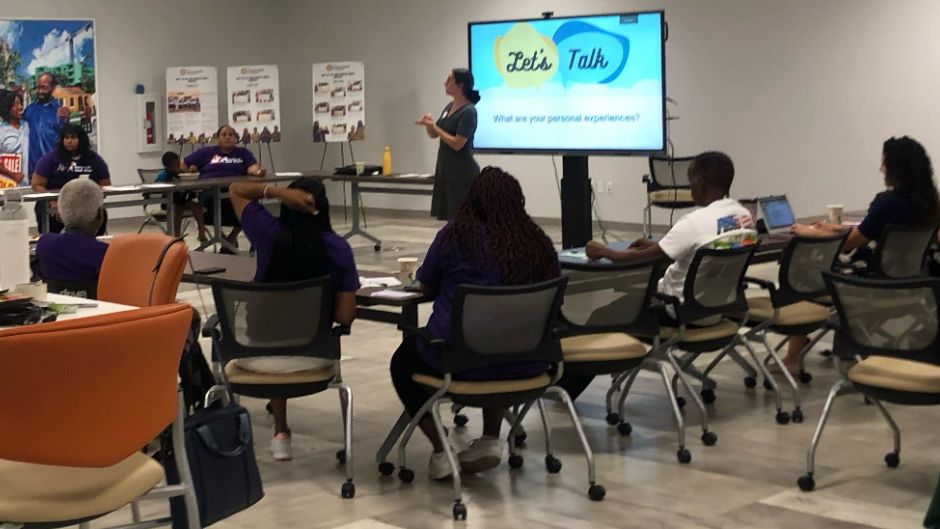Sifting through discovery, canvassing door-to-door, drafting motions, conducting legal research, crafting a flyer, attending a community meeting—all in a day as a community student lawyer in the Environmental Justice Clinic at Miami Law.
Using a community lawyering approach, the EJC seeks systemic change for clients through advocacy, public policy resources, and rights education. The clinic trains and prepares the next generation of lawyer-leaders who will serve at the forefront of three intersecting justice movements: climate, energy, and environmental.
"While gaining practical litigation and policy experience is rewarding, working with community members has been a foundational experience in understanding how community stakeholders are the cornerstone of the environmental justice movement," said Sophia Pastorini, intern at the EJC.
The EJC has a place for students with varying interests, from human rights to race to local government, urban design, and public health. This year, students in the EJC are tackling issues such as displacement, contamination, municipal inequity, and more.
"Whether through motion practice, organizing, or interdisciplinary research, the EJC provides students with a safe space to learn and grow into extraordinary advocates," said Abigail Fleming, acting director of the EJC.
A few of the clinic's cases and campaigns are highlighted below.
Tackling Displacement
In collaboration with stakeholders to address community concerns related to displacement, the Environmental Justice Clinic at Miami Law designed the Displacement Vulnerability and Mitigation Tool to assess and mitigate displacement of protected classes and vulnerable populations created by proposed developments.
The three-part tool is akin to an environmental impact study or a community impact report and would be completed by a developer as part of the permitting process. It provides a framework rooted in equity for developers, local municipalities, and community members to make research-based decisions when considering new developments.
Litigating to Build Power
The EJC had a big procedural win in the Old Smokey case (Styles et al. v. City Miami et al.) when the Court denied both defendants' motions to dismiss. The case addresses the health consequences of toxic ash and hazardous waste from a municipal waste incinerator nicknamed "Old Smokey," which contaminated air and land in the historically Jim Crow-segregated West Grove community.
In September 2017, with support from the EJC, past and present residents of the West Grove filed a state class-action lawsuit against the City of Miami and the engineering firm contracted to remediate the contamination. During litigation, the EJC interns and fellows have had the opportunity to work closely on the case development and strategy and receive critical training on discovery and motion practice.
Diving into Stormwater
This year, the EJC partnered with Miami Waterkeeper and Everglades Law Center to address water quality and support communities by reducing stormwater pollution. Students work alongside scientists, community leaders, and environmental lawyers to improve municipal and industrial stormwater permits and corresponding compliance.
Recently, the team hosted a town hall in Opa-Locka to discuss stormwater issues with community members. To prepare for the town hall, students canvassed throughout the community to learn more about residents' concerns as they relate to water.
"Getting to work with and hear from community members directly has been a formative experience in understanding how necessary community voice is to environmental policy," said Suzannah Friscia, an intern at the EJC.
Friscia and her team are working with local community groups to address water quality concerns.
Read more about Miami Law's clinics

